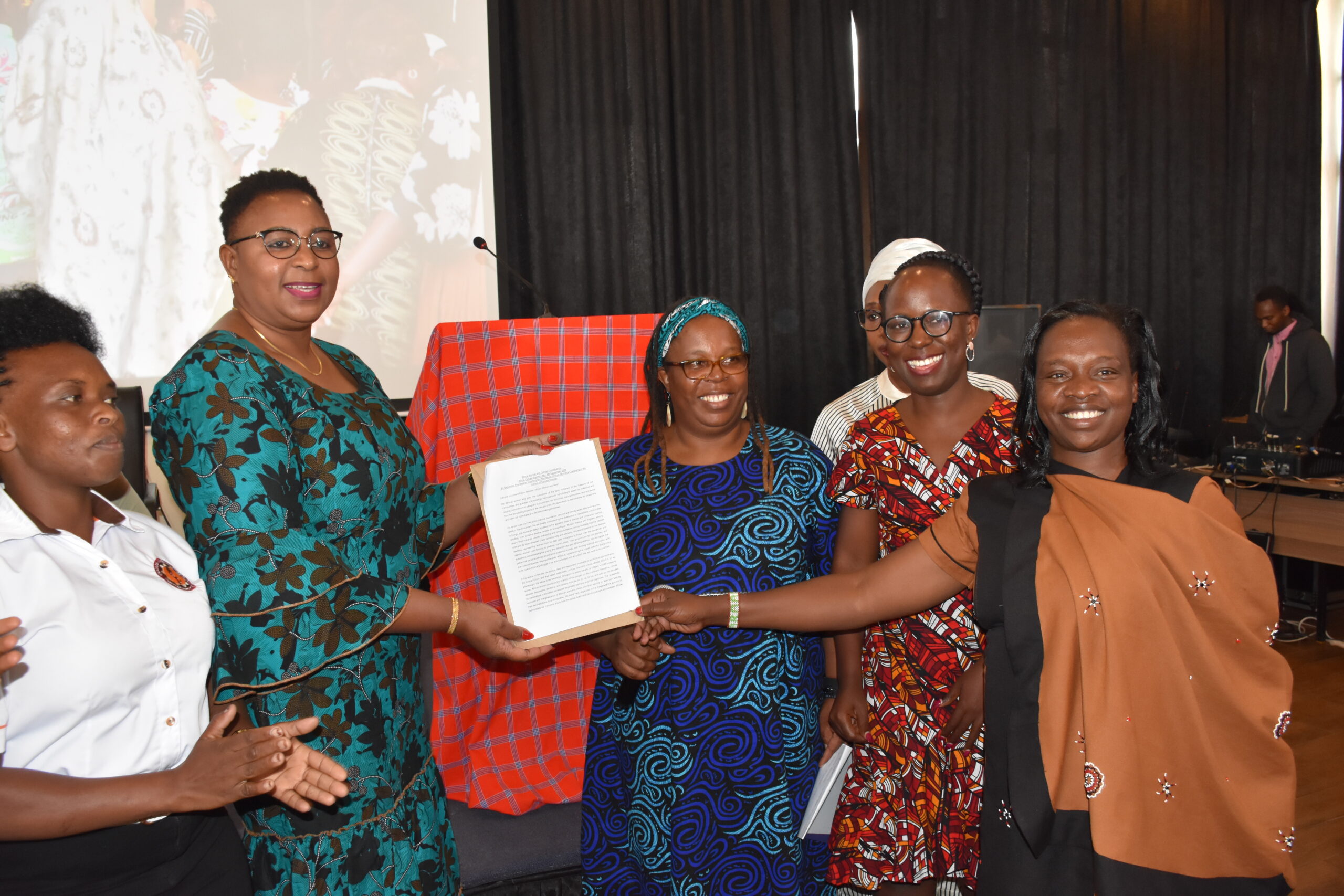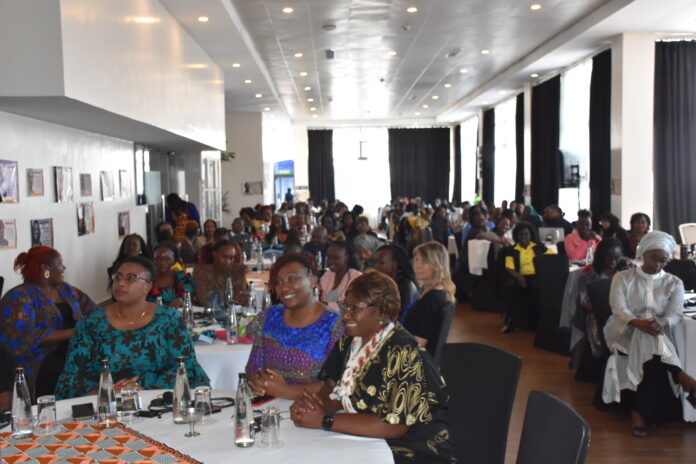By Henry Owino
Nairobi, Kenya: As much as climate change does not discriminate against the Global North or Global South, nor does it favor gender or sex, women are mostly affected. This is owing to the roles women and girls play in the society.
During extreme weather such as droughts and floods, women tend to work more to secure household livelihoods. This leaves women with less time to access training and education, develop skills, or earn income.
Consequently, women are more likely to live in poverty than men, have less access to basic human rights like the ability to freely move and acquire or own land, and always face systematic violence that escalates during periods of instability.
Activities such as securing household water, food, and fuel are the responsibility of women and girls. In times of drought and erratic rainfall, women and girls walk farther than usual and spend more of their time collecting precious commodities and fuel.
Therefore, climate change has a significant impact on women compared to men most of whom make decisions at policy levels. Following these devastating effects, women want their voices to be heard by influential policymakers in this Africa Climate Summit (ACS) held in Nairobi, Kenya.
“We want this ACS to be a platform where African women and gender outline our stand, demonstrate our leadership, and claim our rightful place in decision-making processes. We want to ensure that we inform, frame, and influence our commitments and pledges so that the final document ultimately contains women’s voices as part of the Nairobi Declaration,” The women unanimously deliberated.
The team of women conferred the discussion as a pre-session on the eve of the ACS opening where they launched; the Africa Women and Gender Constituency. The theme dubbed: Claiming Our Narratives: African Women’s Leadership in the Context of Climate Change.

According to Salina Chepsat, from the Endoroise Women group, a community-based organization in Baringo County, patriarchal social structures continue to deny women their right to expression. She complains due to their culture, men take advantage of women and exploit them on the basis of customs.
Chepsat laments it is exploitative when women attend public forums and yet are not allowed to speak. It has affected women’s economic models, and existing political structures, with their colonial legacies, disproportionately affect women.
“We want climate collaborations that will support all mitigation actions aligned with communities’ interests. In addition, make every woman’s voice count and be heard, every struggle to be acknowledged and amplified. And so, women are here to do just that,” Salome Owuonda, Executive Director, of Africa CSID emphasized.
At the end of the day, resolutions in pre-session to ACS D-day were read out and handed over to the guest of honor, Aisha Jumwa, Cabinet Secretary for Gender and Affirmative Action. The women sent clear and resounding messages to African governments, the African Union, and their allied institutions.
For instance, African women’s voices should never be an afterthought. “We refuse to be tokenized, brought in to adorn panels, or utilized to fulfill inclusivity quotas,” the document reads in part.
“African women constitute the majority of the people on this continent; therefore, climate debates, discussions, decisions, and actions must be led by us, for us, and with us, not dictated by corporations or so-called developed imperialist partners and their agencies. The systematic exclusion and marginalization of African women’s voices and their agenda on their own land by their own institutions is unacceptable.

We stand here, organized at the margins of this summit, to demonstrate our concerns and to hold the global North and climate polluters accountable. African women are watching them closely. The only role they should have in this summit is to commit to fulfilling their responsibilities, providing their fair share of grant financing, and refraining from promoting destructive market-based schemes in the name of climate solutions.
For those who still doubt the reality or severity of the climate crisis, we are here to share the stories of how it is affecting African women, our societies, our livelihoods, our well-being, and our economies today.
It affects our health, our cultures, our heritage, and our traditions. The struggles of young women in small island communities, women small-scale farmers grappling with unpredictable weather patterns, women living with disabilities in the face of climate emergencies, or women residing in urban poor communities are stark testimonies of the impacts, losses, and damages experienced today, on this continent.
The voices of these communities must be at the center of the climate summit agenda.
Importantly, for those who assume that African women are merely helpless victims waiting to be rescued by white missionaries, we are here to assert and own our complex realities. Yes, we are among the most affected by the climate crisis, and yet, we are also the creators of real, sustainable, and gender-just climate solutions.
Today, we amplify these solutions, from our knowledge of maintaining seed systems, biodiversity, and soil nutrients for regenerative urban farming to women-led renewable energy enterprises. and African girls employing modern technologies to raise awareness about the climate crisis and promote recycling.
We are equally here to offer well-crafted, evidence-based analyses and framing of the state of the climate crisis in Africa, accompanied by practical and ambitious policy solutions designed to address the climate crisis and its intersecting challenges.
Collective Demands
To our African governments:
- Commit to center African women’s leadership in climate actions. Africa has the least representation of women in global climate change policy processes. African governments must intentionally support the participation and engagement of women in all aspects of climate policy, from design to implementation and monitoring, and ensure that they are contextually applicable to their experiences and lived realities.
- Stand firm and united in demanding climate finance in the form of grants and public funding, guided by the principles of collective but differentiated responsibilities (CBDR), the operationalization of a loss and damage fund to cover economic and non-economic losses and damages and a stronger financial commitment during the Global Stocktake and New Collective and Quantified Goal (NCQG).
- Reject false solutions on our land that are designed to create private profit and legitimize the lack of ambition in cutting emissions by the global north. Net zero is not real zero, and carbon markets and geoengineering are false solutions that harm our land and people.
4. Commit to deliver on the 2003 Maputo Declaration to domestically finance the agriculture sector by allocating at least 10% of African countries’ national budgets. Africa’s food and nutrition security can only be achieved through gender-just and Pan-African policies and solutions that protect indigenous farmers and traditional farming systems from commoditization, the effects of climate change, and capture by multinational corporations promulgating industrial agriculture.
5. Actively and systematically engage African citizens and communities in climate change awareness programs and climate actions to ensure community ownership of climate actions, especially in adaptation, just transition, and disaster risk reduction efforts.
To the Global North and Polluters:
- Cut your emissions by phasing out fossil fuels NOW.
- Provide your fair share of grant and public financing, NOT loans and private market-based financing.
- Step back from the colonial era mindset. Multilateral spaces must embrace the ideals of collective leadership and end the overt and covert dominance of the global north. African governments and other global south governments have the right to equal decision-making power in the multilateral process.
We, African women, commit to standing in our power to free ourselves and our communities from the exploitation of existing economic and social systems that have contributed to the crises we are currently fighting. Let our voices be heard, and let our actions be a beacon of hope for a sustainable and just future for all.














